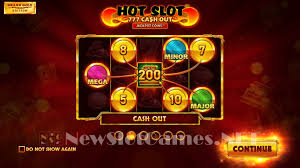Casinos have long been a symbol of luxury, excitement, and chance. From the grandiose establishments of Monte Carlo to the neon-lit strips of Las Vegas, slot 777 attract millions of visitors worldwide, eager to try their luck and enjoy the various forms of entertainment they offer.
A Brief History
The concept of casinos dates back to ancient times. The earliest known casino, or gaming house, was in Venice, Italy, in 1638. It was known as the Ridotto and was established to provide a controlled environment for gaming during the Carnival season. However, the modern casino as we know it began to take shape in the 18th century with the opening of Casino di Venezia in Venice in 1638 and Casino de Spa in Belgium in 1763.
Types of Casino Games
Casinos offer a wide range of games, each with its own set of rules, strategies, and appeal. The most popular types include:
- Table Games: These are classic casino staples like Blackjack, Roulette, Poker, and Baccarat. They typically involve a combination of skill and luck and are often played against the house or other players.
- Slot Machines: Known for their simplicity and potential for large payouts, slot machines are among the most popular casino games. They come in various themes and types, from traditional three-reel slots to complex video slots with multiple paylines.
- Electronic Games: Modern casinos also feature electronic variations of traditional table games, providing a faster-paced and sometimes more private gaming experience.
Economic Impact
Casinos contribute significantly to local and national economies. They create jobs, stimulate tourism, and generate substantial tax revenue. For instance, the casino industry in Las Vegas alone employs hundreds of thousands of people and contributes billions of dollars to the economy annually. Moreover, casinos often invest in infrastructure and community development, further boosting local economies.
Regulation and Responsible Gambling
The casino industry is highly regulated to ensure fair play, prevent fraud, and protect consumers. Regulatory bodies, such as the Nevada Gaming Control Board in the United States or the UK Gambling Commission, oversee casino operations, enforce gaming laws, and ensure that casinos adhere to strict standards.
Responsible gambling is a major focus within the industry. Many casinos implement measures to help prevent gambling addiction, including self-exclusion programs, responsible gaming awareness campaigns, and tools to monitor and control gambling behavior.
The Future of Casinos
As technology advances, the casino industry continues to evolve. Online casinos and mobile gaming platforms have surged in popularity, offering players the convenience of gambling from home or on the go. Virtual reality (VR) and augmented reality (AR) technologies are also beginning to transform the gaming experience, providing more immersive and interactive environments.
In addition, casinos are increasingly integrating sustainable practices, such as energy-efficient operations and community-focused initiatives, reflecting a growing awareness of environmental and social responsibility.
Conclusion
Casinos remain a dynamic and multifaceted industry, blending entertainment, economic impact, and regulation. As they continue to adapt to technological advancements and societal changes, they are likely to remain a significant part of the global entertainment landscape for years to come.

